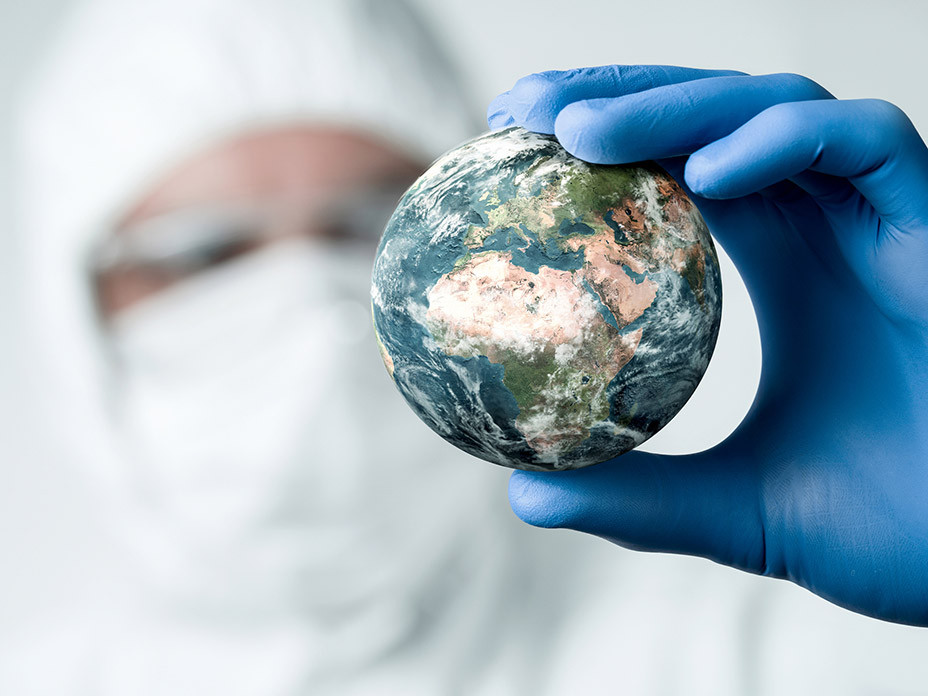 (Illustration by iStock/sv_sunny)
(Illustration by iStock/sv_sunny)
Amid a disaster like COVID-19, the culprits of some of the worst abuses of power are the very systems and structures that we often turn to for leadership. The abuses can be committed with calculated awareness, such as when US Senators privately sold off millions in stocks while publicly downplaying the threat of the virus. Other times, institutional aid efforts unintentionally create ripple effects that disproportionally and severely affect vulnerable communities. In the San Francisco Bay Area, for example, shelter-in-place policies and the curtailment of public services have devastated families with precarious employment and people without homes.
Whether harm differs by being intentional or structural, it is the same in one critical way: Top-down, centrally managed systems of power can end up creating havoc due to the lack of their understanding of local communities.

In my role as research director with Accountability Counsel, a nonprofit organization that protects communities' human and environmental rights around the globe, and in previous positions, I have witnessed numerous failures of top-down responses to crises. While coordinating international assistance into northern Syria at the Syrian-Turkish border for several years, I observed millions of dollars wasted on ineffective programming, and countless millions more spent on projects that led to increased violence, instability, and suffering for thousands of people. Compounding the problem, a lack of local knowledge and context prevented project designers from seeing the effects of their actions, and even the most destabilizing projects were continually renewed and expanded over time.
Our team at Accountability Counsel has seen the same dynamic play out in Myanmar, where top-down conservation efforts in response to a deforestation crisis have instead paved the way for further environmental exploitation, violated human rights, and threatened the fragile peace in a conflict zone. Without appropriate care and due diligence—and without proper consultation with impacted communities—it is remarkably easy for a project designed to help people or the environment to instead result in untold harm.
That's just a couple of examples among many. Studies of disasters in New York, Argentina, and other locations have identified myriad ways that relief by outsiders can undermine the recovery it is intended to produce.
In the context of our current global crisis, community-led responses to COVID-19 have a clear advantage over those coming from distant centralized bastions of power, which, intentionally or not, often reflect and reinforce existing inequities.
Community organizations here in the San Francisco Bay Area, such as the Arab Resource and Organizing Center (AROC), have provided invaluable support to vulnerable families who have been overlooked by official state responses, while tying their relief efforts to broader campaigns of mutual aid, collectivity, and solidarity. AROC explicitly uses its community support work to highlight the importance of health care as a right, anti-racism, climate change activism, and mutual solidarity for women, workers, migrants, incarcerated populations, people with disabilities, and the homeless. Accountability Counsel’s Good Ally policy aims to support civil society initiatives like AROC's. For example, our research team repurposed a community surveying tool to send SMS and voice messages to farmers across Haiti to help AROC identify vulnerable families in San Francisco.
It is important to remember that the vulnerabilities of these communities existed before the crisis cast them in such stark relief. With COVID-19 sharpening our awareness, we have an opportunity and responsibility to improve our social systems to better support society's most vulnerable not just during this crisis, but after it passes.
Many pathways toward a better world are being laid bare by the altruistic mutual aid efforts arising in cities around the globe. These locally designed and collaboratively built acts of solidarity—which view the vulnerable as participants in their survival rather than passive consumers of assistance—inform a model of community resilience and collective empowerment with implications far beyond their immediate impact. They reject responses to the pandemic that value political hegemony and expediency over the well-being of the homeless, victims of domestic violence, people with disabilities and many other marginalized members of society.
The coronavirus pandemic has shaken the globe, and it is likely that things will never return to the way they once were. While we fight to mitigate the damage the crisis has wrought, we should learn lessons from the mutual solidarity and community resilience that it has unveiled. It will ensure the world that comes after the crisis is a better one for all.
Support SSIR’s coverage of cross-sector solutions to global challenges.
Help us further the reach of innovative ideas. Donate today.
Read more stories by Samer Araabi.

